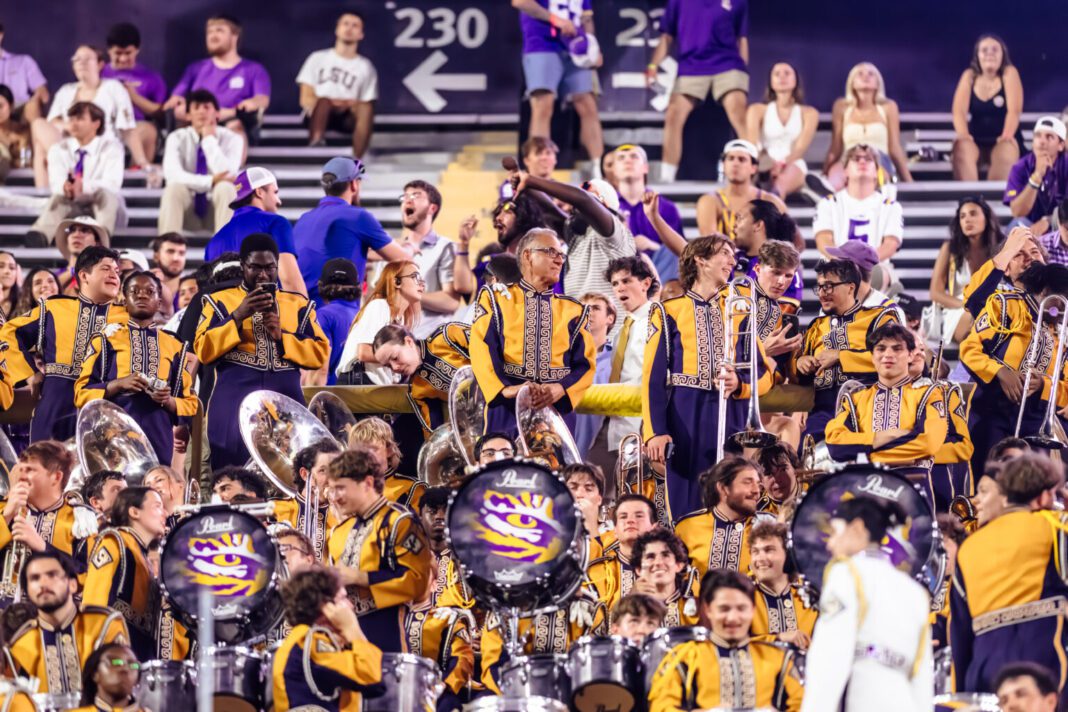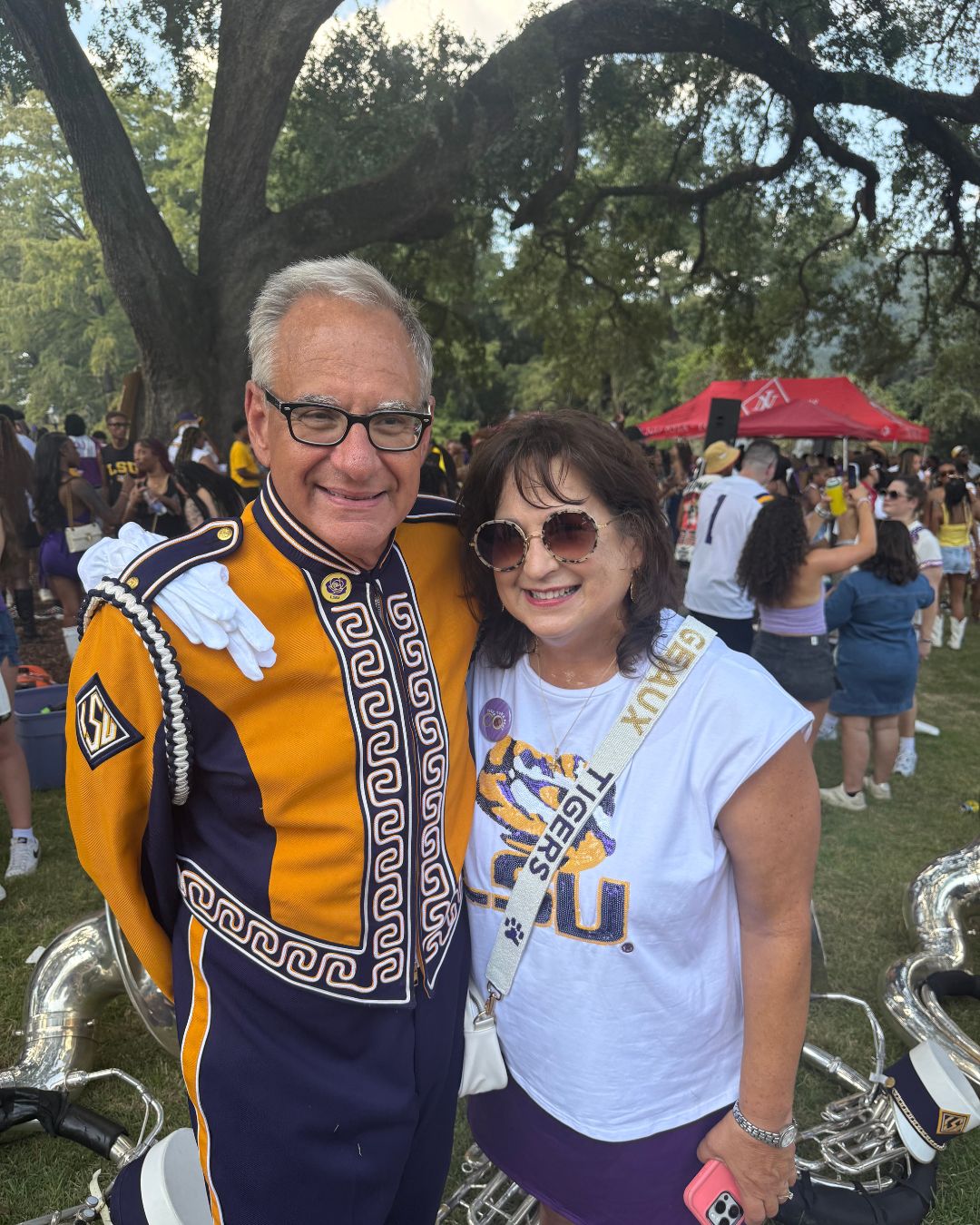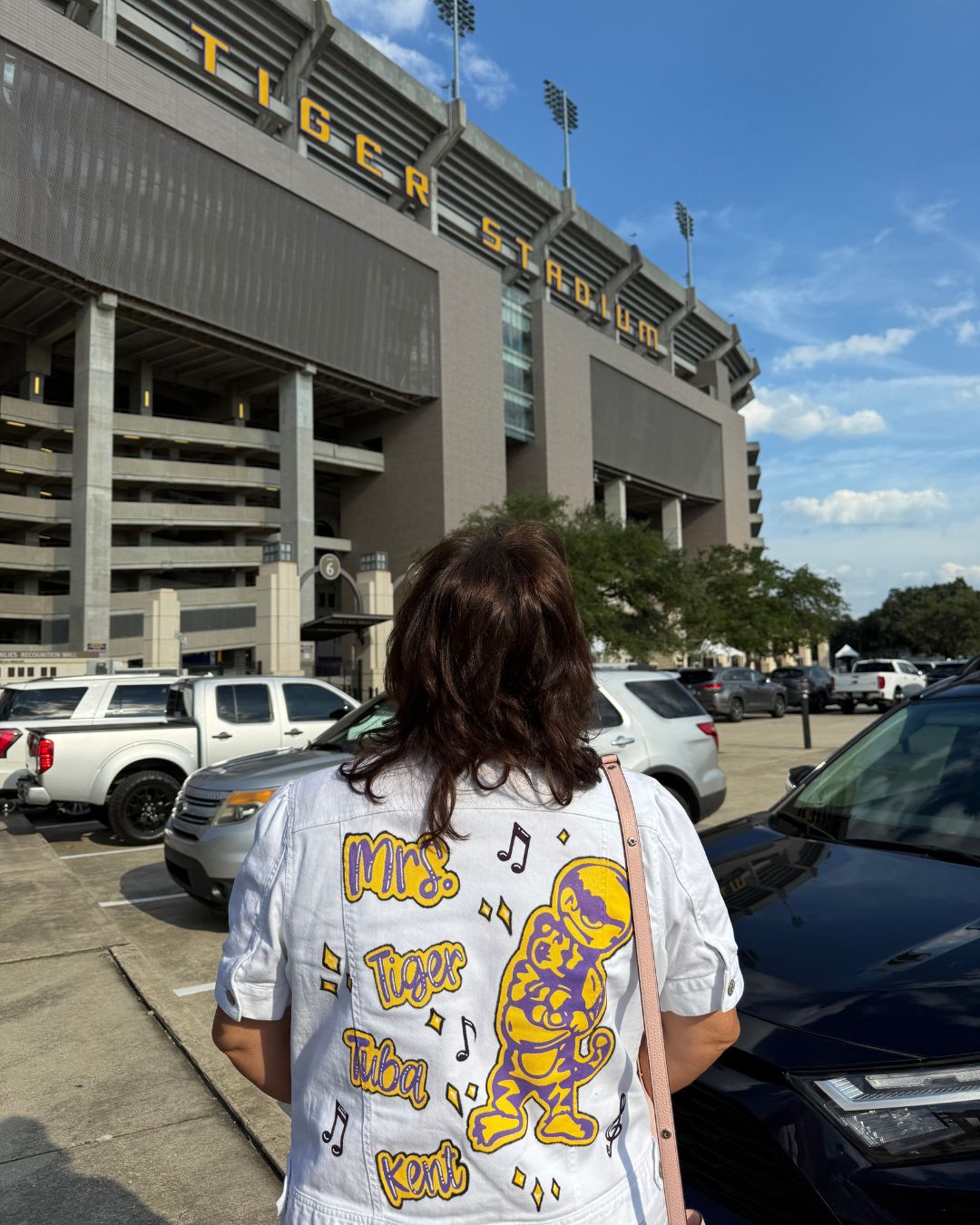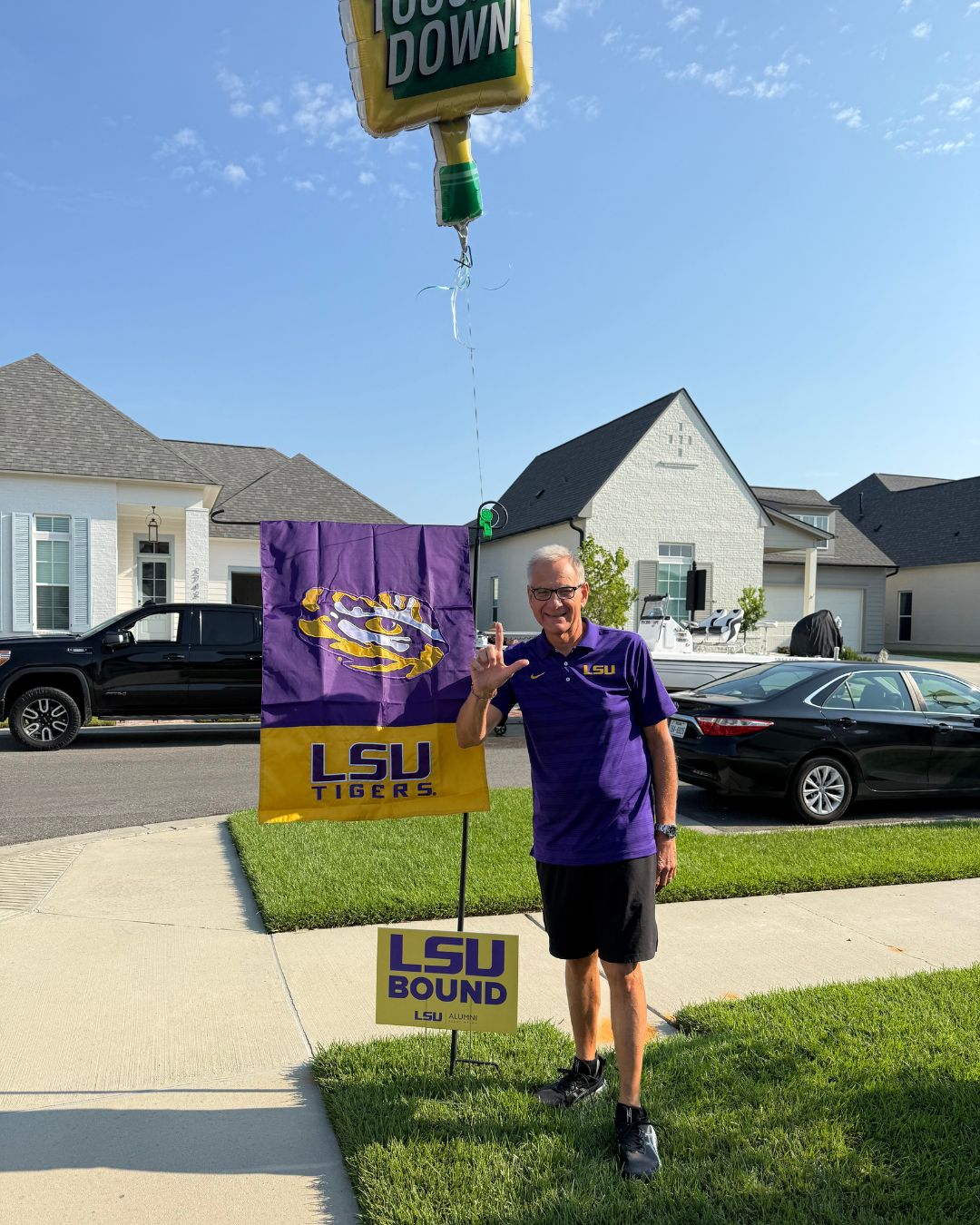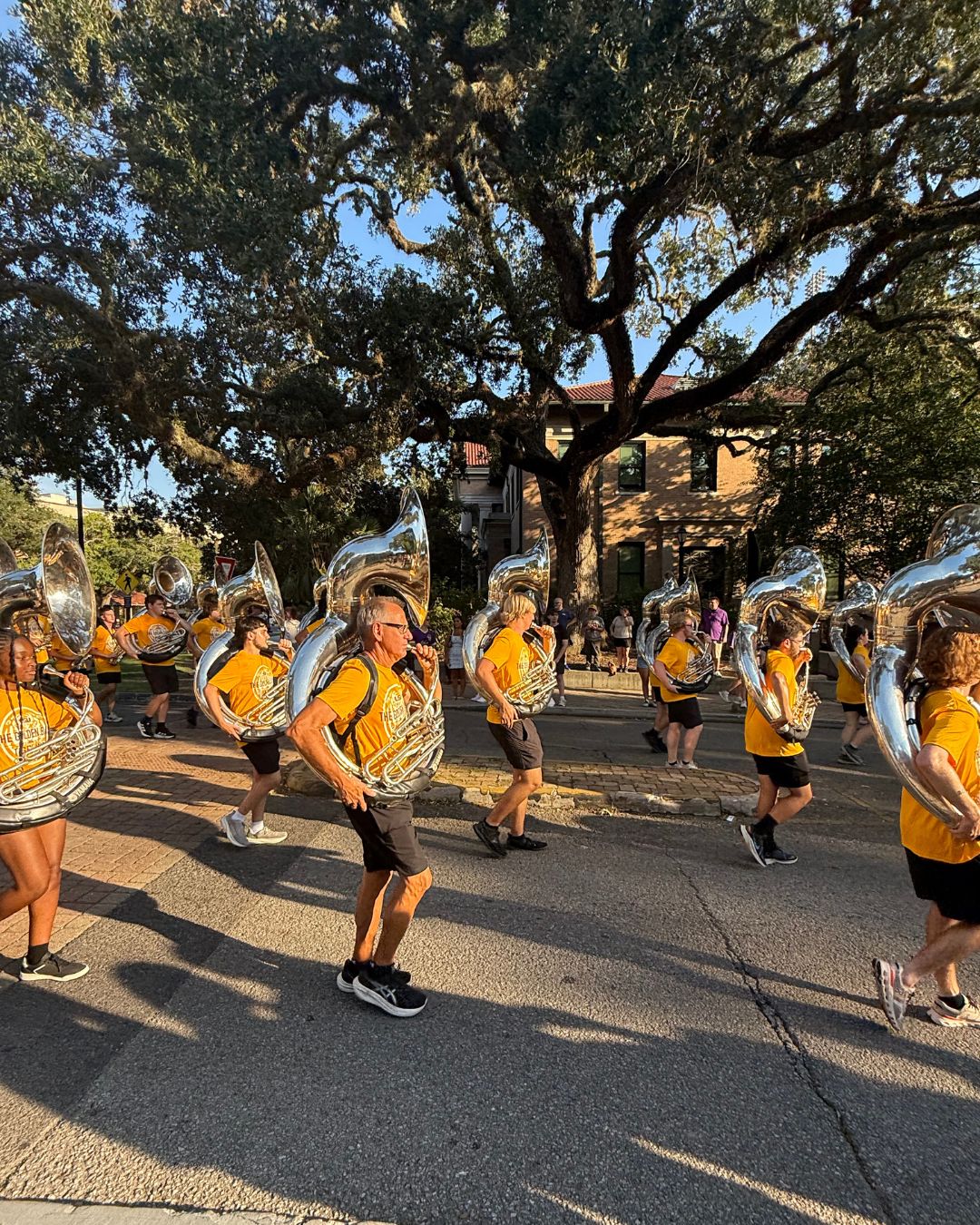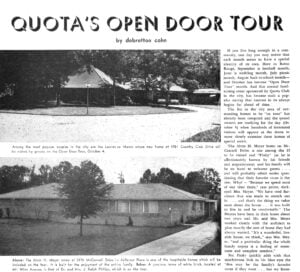Catching up with Tiger Tuba Kent, the Golden Band from Tigerland’s 66-year-old member
On paper, Kent Broussard is like any other LSU freshman. He has a 13-hour course load, studies for exams, and is a member of the Golden Band from Tigerland. The big difference? He graduated from high school in 1977.
Broussard, better known as “Tiger Tuba Kent,” is a 66-year-old retiree who has dreamed of being in the LSU marching band for almost five decades. And, this football season, you can find him marching down Victory Hill, playing in the student section and performing on the field at halftime in that iconic gold and purple uniform.
LSU’s home opener against Louisiana Tech on Sept. 9 was his debut as an official member of the band. It was there in the stands of Tiger Stadium that he had his “I’m here, I made it” moment.
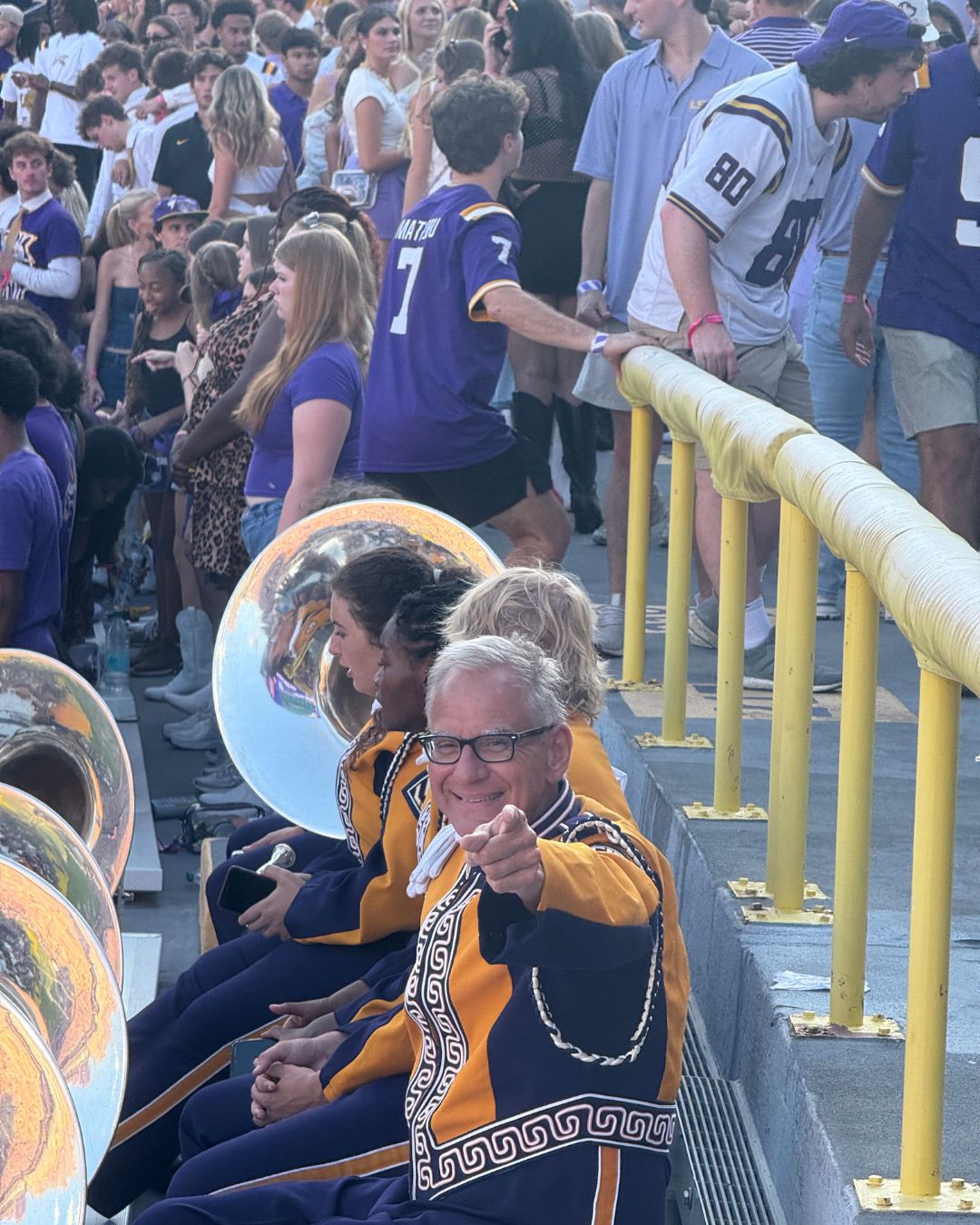
“The hundreds of games I’ve been to in Tiger Stadium [where I] heard the band hundreds of times,” Broussard says, “it never left my thoughts.”
Broussard attended Southeastern Louisiana University in the ‘70s, much like just under a quarter of his high school graduating class. There, he earned two degrees and met his wife of 41 years, Cheryl. After graduating, he began a 30-year career as an accountant until his retirement.
But for years, he asked himself, what if he had gone to LSU and joined the Tiger Band? When he was 35, a post-retirement idea started to take root.
“I want to continue to challenge myself for the rest of my life, and that was a big part of it, to be able to do that,” Broussard says. “So I put that in the back of my mind back 30 years ago, and always had it. I never lost it.”
Five years ago, Broussard hard-launched the dream of marching in the band to his family. After convincing them he was serious, Operation: Tiger Tuba Kent was a go.
“I can’t stress enough how much support I’ve gotten from the family in doing this,” Broussard says. “Because without family support, this wouldn’t have happened at all.”
After confirming that he was eligible to be in the band, Broussard got to work. He knew physically he had to be ready to march with a sousaphone. He had already been running 20 to 25 miles a week since he was 50, but he began to wear a weighted vest around his home and to do yard work to truly get ready to march.
While he was getting physically prepared, Broussard had to get back into the groove of an instrument. For the last year, he worked with LSU graduate assistant Matthew Thompson to relearn how to play and read sheet music.
“I hadn’t picked up an instrument in 45 years,” Broussard says.
After the long process of training, applying to be a student, and sending in an audition tape to the band, Broussard made it as the oldest member of the LSU Tiger Band, but that was when the real work began.
To be a member of the band, one must be a full-time student at LSU. So while he’s learning the marches and formations for the first time, Broussard is also attending college classes for the first time in decades.
Technically a transfer student, Broussard is non-matriculated and does not have a declared major. Currently, he is taking classes that interest him and connect back to his roots as a Louisiana native: Louisiana history, politics, emergency management and music.
“It’s quite a bit of work. You’ve got to be dedicated on the academic side, as well as the musical side,” Broussard says. “I’m just one of thousands and thousands of students going through the same thing.”
But that work is worth it to be on the field in Death Valley, something he’s dreamed of since attending his first game at LSU back in the late ’60s.
“I was looking around the stadium, and I said, ‘Well, it’s just a stadium with people, so what? You know the show. You know the music. Go out there and have a good time,’” Broussard says about his first home game in the band. “Because that’s what it’s about. It’s about having a good time, and we did.”
While Broussard does go down in the history books of the Tiger Band, he emphasizes that at the end of the day, he is just one player in a band of 325 members, 50 color guard members, as well as the Golden Girls and staff. Everyone involved makes the band we know today.
“This is not really about me. … It’s a unit. It’s one team, and we’re all together working really, really hard to put what everybody sees on Saturday night,” Broussard says. “My success is everyone’s success.”
Although this is Broussard’s dream, he says he hopes to encourage fellow retirees and students alike that if you work hard for something, it’s in your reach.
“If you don’t try, you’re never going to know if you can do it,” he says.
He officially has four years of eligibility to play in the band, but whether he will continue for the next four years is up in the air. It will be a family decision, which will also be reliant on his health in the coming years, Broussard says.
“I am grateful to have the opportunity to be able to do this at my age,” Broussard says. “I’m glad I can do it because I know there are a lot of people who couldn’t do something like this, so I’m out there for everybody else who can’t.”
Looking back, Broussard would not change a thing; however, Southeastern is where he got the start of his family and his life, Broussard says. Playing with the band at this Saturday’s matchup against Southeastern will be extra special, Broussard said in a recent Instagram post.
“It was one of the best times in my life, and one of the best eras of my life. I always remember that,” Broussard says. “Life has a way of coming full circle, and this is kind of what the full circle is.”
This article originally appeared in 225 magazine’s 225 Daily newsletter.




